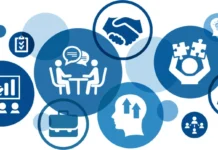by Michael J. Devereux, CPA, CMP, partner
Mueller Prost PC

If you aren’t paying attention to your state tax return, you may be paying too much. The federal income tax return usually gets the most attention. This may be a result of confusion, frustration or both, but once a taxpayer reviews the federal return, many people tend to skim or even skip over the state returns, whether they file in one state or many. Perhaps it is because the state tax has a lower tax rate. Since it is only five or six percent, is it worth the extra time and effort for a processor and the CPA to spend additional time identifying ways to reduce the state income tax liabilities? This appears to be true for some CPAs, as well. Many times, when reviewing a state return for a new client, we find that the state income tax return was neglected.
In this article, we will take a high-level look at a few potential state tax credits and incentives that could provide significant tax savings. Like the federal tax laws, states legislate tax incentives to encourage a specific behavior, such as investment, hiring or research. Generally, these incentives are there to encourage more activity within the state, thereby increasing the number of jobs and revenue to the state coffers. It is important to note that all states have different, unique laws, so further work is necessary to determine whether your state(s) offer these incentives and, if so, how much benefit you could receive.
For plastics processors, one of the most overlooked credits is the research credit. This is especially true for the state research credits. More than 30 states have some form of research credit. All state rules are different, but most plastics manufacturers should benefit from a state research credit if they are able to take advantage of the federal credit. Similar to the federal credit, qualifying activities may include, but are not limited to, the following:
- Developing new product designs
- Developing new mold designs or improving transfer molds
- Experimenting with processing variables to improve processes
- Improving manufacturing processes through automation
- Experimenting with new resins
- Performing PPAP or First Article inspections on new parts
In addition, almost every state has some form of job creation tax credit. While some may resemble the federal Work Opportunity Tax Credit, many states have credits that encourage hiring of workers in underdeveloped areas. These areas often are referred to as “enterprise zones,” which may have other benefits in addition to the hiring incentives. Some states try to attract a certain level of job. For example, you may receive a credit or other benefit for bringing or increasing jobs that pay over the average rate of the particular county in which you operate. Other states may have specific industry incentives, such as those for manufacturers.
Many states also have an investment tax credit. These incentives are based upon capital investments that could include buildings, building additions and equipment. Some states take a narrow approach by limiting the incentives to certain industries or levels of investment. Other credits may be available for education assistance and training costs.
While this article has touched on the more common incentives, opportunities are available for tax breaks or other incentives by contacting the economic development agency in the area in which you are located or are looking to expand. States, counties and cities want to encourage businesses to either start or expand facilities in their area. One way to do that is by offering credits or other benefits that may include adjustments to sales tax or property tax. It is important to start these conversations early so you can identify all potential benefits or incentives that may be available.
Michael J. Devereux II, CPA, CMP, is a partner and director of Manufacturing, Distribution & Plastics Industry Services for Mueller Prost. Devereux’s primary focus is on tax incentives for the manufacturing sector. He serves on MAPP’s Board of Directors and has been a MAPP sponsor since 2006. Mueller Prost’s Tax Incentives Group is nationally recognized and has assisted numerous companies in the plastics industry capture these benefits. For more information, email mdevereux@muellerprost.com or call 314.862.2070.




